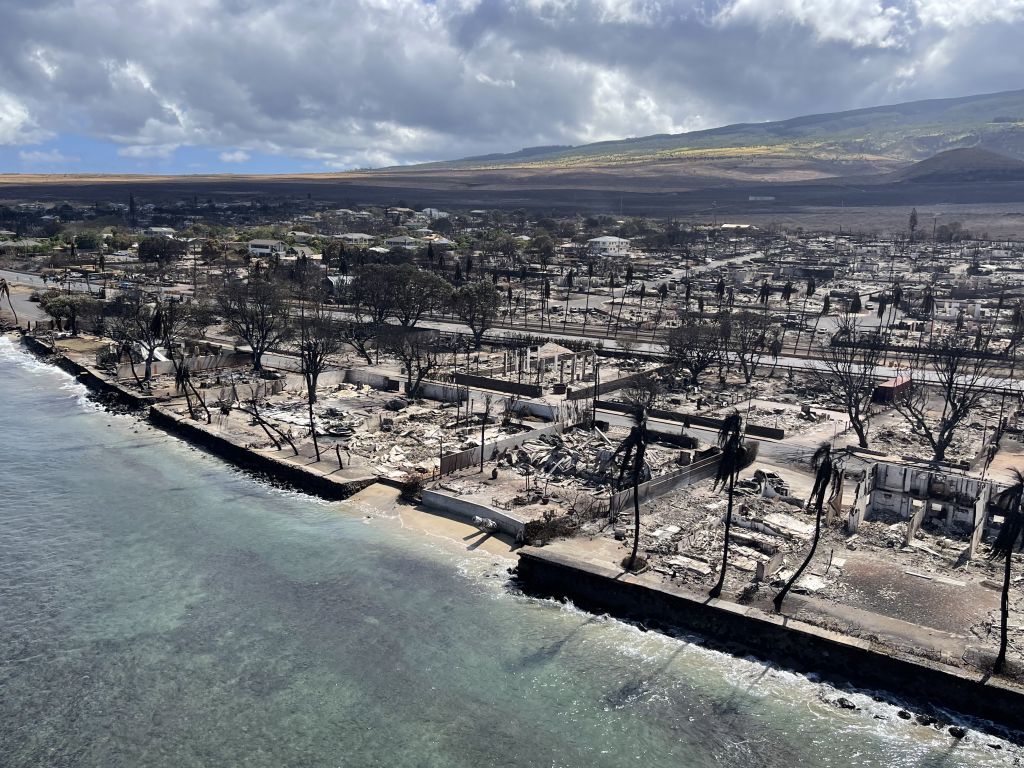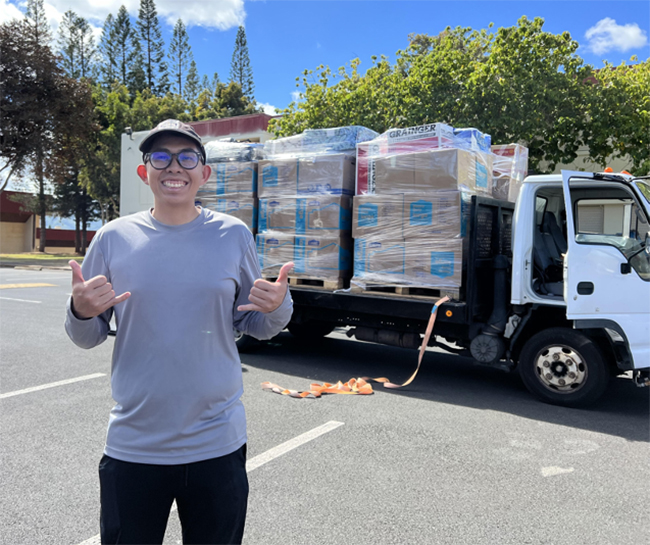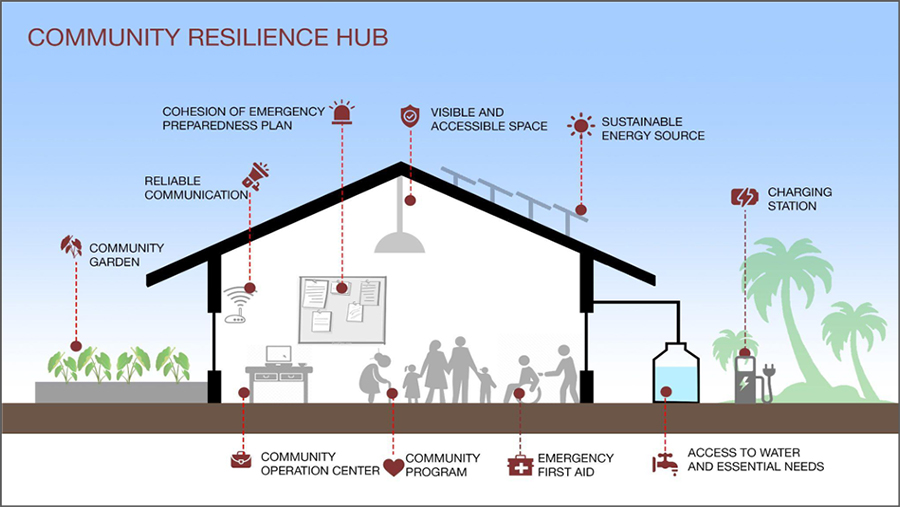Lahaina Strong: The strength of community through Community Resilience Hubs
by Cuong Tran

On August 8, 2023, the worst imaginable happened. Deadly wildfires fueled by hurricane-force winds engulfed historic Lahaina and Kula on the island of Maui. Thousands of people displaced, hundreds of homes and businesses destroyed, and many lives lost. Feelings of shock, anger, and sorrow from residents filled the air, while dear belongings and precious memories disappeared. Lahaina, the town I called home for the past 20 years, is unrecognizable; my house is now stripped down to its foundation. Luckily, many of my friends and extended family members are safe, but they are dealing with the harsh reality of losing everything. The words Lahaina Strong erupted from the mouths of many survivors, representing hope in our community’s overall strength and persistence. These words will stick with me for the years it will take for Lahaina to rebuild.
Amidst all of the emotions behind the tragic event, I can’t help but feel grateful for various reasons.
First, I’m grateful for my parents’ safety. Neither I nor my sister was in Lahaina during that time, and with no cell phone service in west Maui, we had to wait two days before hearing from my parents that they had safely evacuated. With no warning sirens activated and phone lines down, my parents recognized the intense heat approaching them just in time. Having only a few minutes, they grabbed what they could and drove as fast as possible towards the nearest shelter. Leaving everything behind has left an emotional mark on my parents, but I admire their positivity as they try to navigate the recovery process.

Second, I’m thankful for all the love and support for Maui. Donation drives, fundraisers, and other calls for assistance blanketed the internet. The outpouring of generosity shows that the spirit of aloha travels worldwide and is reciprocated during times of need. I even had the opportunity to participate in several donation drives on Oʻahu. Seeing the many hands moving the enormous donations from one island to another felt inspiring. “Help is on the way, Maui” is the mantra I kept telling myself each time I moved a box of donations while volunteering. Because I wasn’t on Maui, I found other ways to assist my Lahaina ʻohana. Volunteering helped me put my mind at ease. It also helped me forget, temporarily, that this tragedy impacted me. Among the volunteers, I found comfort in no one knowing I was from Lahaina. I wanted to come to help as a volunteer and not let it be known that I was a victim.
Lastly, I’m beyond excited about the boots-on-the-ground work implemented immediately after the fires. Specifically, community leaders and concerned residents who were impacted stepped up to help find relief and support through the development of Community Resilience Hubs (CRHs). CRHs are community-led, community-based facilities that provide various resources and services. In Hawaiʻi and other isolated islands in the Pacific, communities have to rely on each other due to the fact that government responses might be slow or delayed. The development of CRHs helps to mobilize spaces to build and strengthen resilience among communities.
Throughout my master’s program, CRHs have been my area of interest. I aided the City and County of Honolulu in creating a Resilience Hub Action Plan. In partnership with the University of Hawaiʻi at Mānoa Department of Urban and Regional Planning and the Center for Resilient Neighborhood at Kapi’olani Community College, we identified sites around Oʻahu that can be potential CRHs. My thesis focused on creating a framework for developing CRHs for disaster planning in Oʻahu, not knowing that other islands would employ the idea spontaneously. Rather than wait for government officials to assist, Maui residents took it upon themselves to deploy impromptu CRHs, coordinating the supply of needed goods and services to other residents for the next few months, and perhaps years, while recovery efforts are underway.

Hawaiʻi’s response and recovery to future disasters lies in how we can best prepare our communities. A 2014 Western Maui Community Wildfire Protection Plan established nearly a decade ago that Lahaina was at extreme risk for fire; more action should have been taken over the years to address the warnings and recommendations in the plan. Our current emergency management system must be updated to prepare for the impacts of climate change. As a Hawaiʻi Sea Grant Gordon E. Grau Fellow with the National Disaster Preparedness Training Center, I have been assisting in expanding disaster research, nationally and internationally. I am striving to employ what I learn to help Hawaiʻi’s communities prepare for future disasters by establishing CRHs and supporting residents with disaster preparedness training and education.
And in the meantime, I will continue to help Lahaina, my own community, recover.
 About the author:
About the author:
Cuong Tran is a 2022 E. Gordon Grau Coastal and Marine Resource Management Fellow hosted by the National Disaster Preparedness Training Center. He currently assists in expanding disaster research and training capabilities with communities in the Pacific region and the continental United States. Cuong was raised in Lahaina, Maui where he developed a lifelong passion for serving his community.

